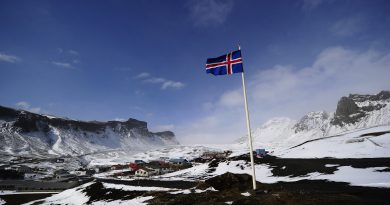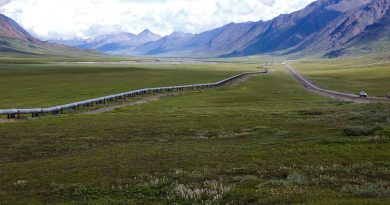Senate committee passes bill to implement UN Declaration on the Rights of Indigenous Peoples in Canada
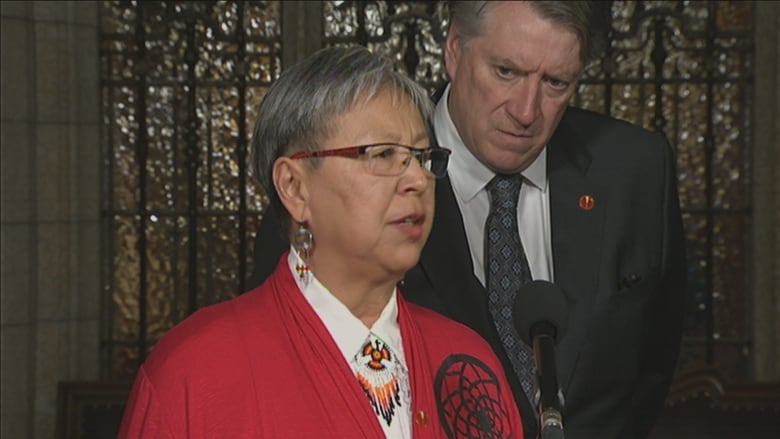
The Senate’s Aboriginal peoples committee has passed a bill that will implement the United Nations Declaration on the Rights of Indigenous Peoples (UNDRIP) in Canada — over the objections of Conservative senators who say they fear adopting the legislation will give Indigenous peoples a veto over future natural resource development.
The legislation, introduced as a private member’s bill by NDP MP Roméo Saganash, will now go back to the Senate chamber for the last legislative phase of debate and a final vote.
During Tuesday morning’s raucous committee meeting, Conservative senators accused committee chair Liberal Sen. Lillian Dyck of — with the support of Independent senators — unfairly “railroading” opposition to the legislation by refusing to allow some Tory senators to fully speak to their concerns.
The Conservative contingent also has been accused of unfairly stalling the bill, which passed by a large majority in the House of Commons.
“My freedom of speech has been arbitrarily limited and all I was trying to offer was a balanced view,” Conservative Nunavut Sen. Dennis Patterson said as he was prevented from reading remarks on one of his proposed amendments to the bill. Other senators did not have a chance to speak to Patterson’s proposed amendments.
“There hasn’t been sufficient clarity on how the legislation will apply in the Canadian context. To rush through a private member’s bill, with so many open questions and so few answers forthcoming from the government of Canada, and on the eve of a federal election, would be reckless and unprecedented,” Patterson said.
‘Undemocratic’ and ‘disgraceful’, says Conservative senator
Conservative Sen. David Tkachuk said the actions of the chair went “beyond the pale.” He requested more time-consuming recorded votes on virtually every matter that came before the committee Tuesday to express his dissatisfaction with the committee process.
Tkachuk objected to the committee punting government business — namely, clause-by-clause review of the Indigenous languages legislation — to deal with an NDP bill, a departure from the standard Senate practice of prioritizing government bills.
Amid the fracas, Independent Manitoba Sen. Marilou McPhedran suggested Tkachuk should be removed from the committee’s proceedings.
“You think the Senate belongs to you. It does not belong to you. It belongs to the people of the country and we all have a right to speak,” Tkachuk said in response.
After the meeting, Tkachuk called the proceedings “the most undemocratic meeting I’ve ever seen” and “disgraceful.”
Assembly of First Nations (AFN) National Chief Perry Bellegarde, who has called Tory procedural tactics on the bill “shameful” and “undemocratic,” praised Dyck in statement Tuesday for her “strong, principled and tenacious leadership when dealing with legislation as important as this.”
UNDRIP recognizes the rights of Indigenous peoples to be free from racial discrimination, to self-determination, to autonomy with regard to their “internal and local affairs” and to financial compensation for confiscated lands.
It demands states obtain “free, prior and informed consent” before approving activity on Indigenous land, including natural resources extraction. It’s that provision in particular that has Conservative senators warning that passing the legislation might amount to granting Indigenous communities — some of which oppose extractive resource development — a veto over proposed projects.
If the UNDRIP legislation, C-262, doesn’t pass by the end of June, it will die on the order paper. That would mean new legislation would have to be introduced in the next Parliament to implement UNDRIP.
Conservatives fear Indigenous ‘veto’
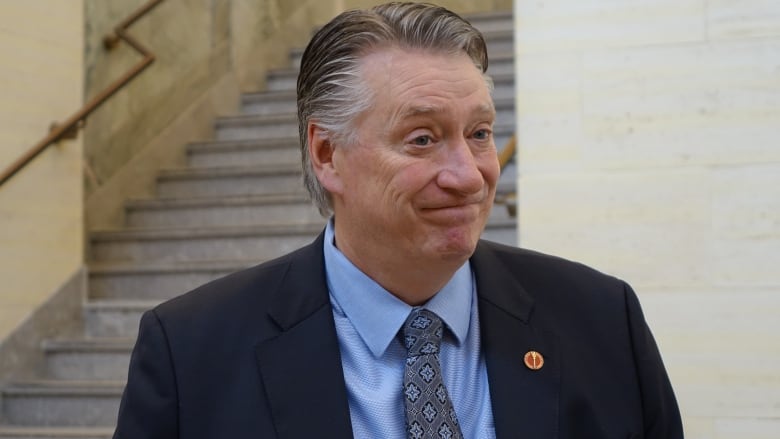
While Independent Sen. Murray Sinclair, the bill’s sponsor in the upper house, has said the bill isn’t designed to give Indigenous peoples a “veto,” Independent and Liberal members of the committee voted down a Tory amendment that would have explicitly stated that was the case.
Conservative Alberta Sen. Scott Tannas proposed a new clause that would have stated “free, prior and informed consent, as referenced in the schedule of this bill, shall not be interpreted as an ultimate veto but simply as one aspect of consultation.” The amendment was defeated.
“‘Veto’ is simply a phrase which, in its Latin roots, means ‘I forbid.’ Indigenous people are not being given the right to forbid. They are being given the right to require their consent. That’s totally different,” Sinclair said.
How will it apply?
The Senate’s Aboriginal peoples committee has heard differing legal views on how UNDRIP will be applied in Canada.
Last month, senior officials with Justice Canada and Crown-Indigenous Relations told senators the bill doesn’t necessarily mean all of the bill’s provisions will become a part of Canadian domestic law.
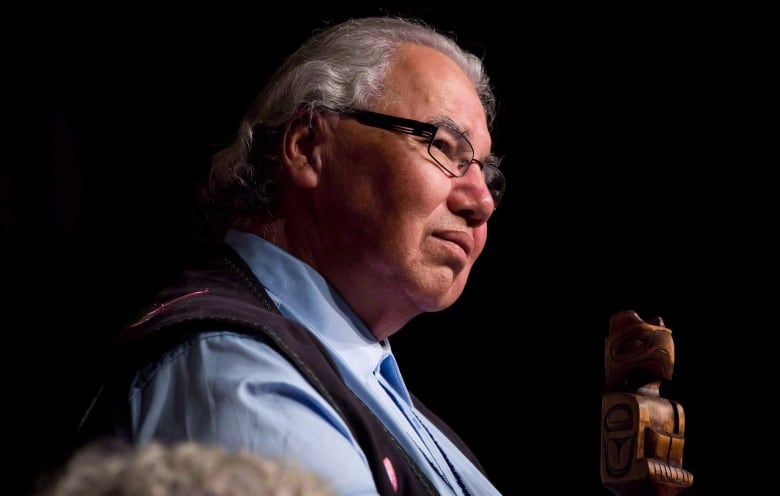
“Bill C-262 alone won’t accomplish the full implementation of the declaration … It is not an actual attempt to legislate each provision of the declaration. The bill would have to be a lot more explicit if that were the intention. It would have to take each article and say, ‘This is now federal law.’ We don’t read it saying that,” said Laurie Sargent, assistant deputy minister of the Aboriginal affairs portfolio at Justice Canada.
“Free, prior and informed consent is not defined in the UN declaration, and there is no international or domestic agreement on the meaning of the principle of free, prior and informed consent,” said Ross Pattee, assistant deputy minister in the implementation sector for Crown-Indigenous Relations
Pattee said “free” generally means consultation without “coercion, intimidation or manipulation,” and “prior” implies the consent is “sought sufficiently in advance,” while “informed” implies information provided to Indigenous peoples covers a range of aspects.
“Consent” has been characterized by former UN Special Rapporteur James Anaya as “making every effort towards mutually acceptable arrangements, allowing Indigenous peoples to generally influence the decision-making processes … It’s about building consensus and working together in good faith.”
Other observers have said the bill is simply too vague and its provisions are misunderstood by its supporters.
“It appears that the committee is hearing from only a small number of witnesses on the bill, which is very unfortunate in light of its potentially wide-ranging impacts and some significant issues with the drafting of the bill,” said Dwight Newman, the Canada research chair in Indigenous rights in constitutional and international law at the University of Saskatchewan.
He said the bill could have some “highly unpredictable effects,” particularly in light of section 3, which states that UNDRIP is “is hereby affirmed as a universal international human rights instrument with application in Canadian law.”
“The concept of UNDRIP being given immediate ‘application in Canadian law’ raises many uncertainties and could raise questions about if Bill C-262 would immediately invalidate parts of other Canadian statutes and/or would be hemmed in in its aspirations by subsequently adopted statutes,” Newman said.
“The present form of the bill contains various problems, generates more uncertainties than it needs to, and is inconsistent with some of the statements made in support of it.”
Related stories from around the North:
Canada: Canada’s inquiry into missing and murdered Indigenous women issues final report with sweeping calls for change, CBC News
Finland: Finnish gov pulls bill to ratify convention on Indigenous peoples’ rights, Yle News
Norway: Inuit, Sami leading the way in Indigenous self-determination, study says, CBC News
Sweden: Calls for more Indigenous protection in Sweden on Sami national day, Radio Sweden
United States: Inuit leaders meeting in Alaska seek greater voice in governance, Radio Canada International

